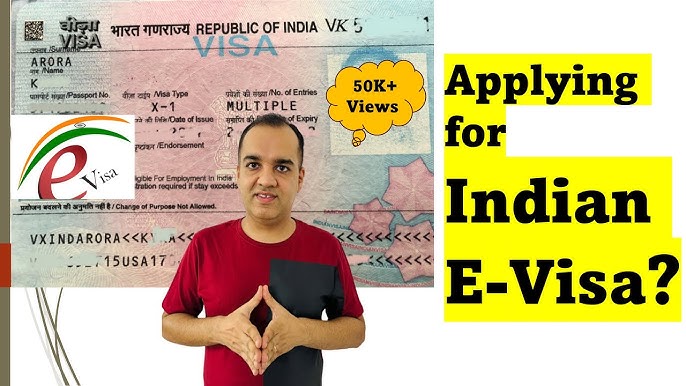India, a land of rich history, culture, and economic opportunities, attracts millions of visitors from around the world. Whether you’re traveling for leisure, business, education, or medical treatment, obtaining the appropriate visa is essential for a smooth entry into the country. With multiple visa options available, it’s important to understand which type best suits your purpose of visit. This guide outlines the various types of Indian visas, the application processes, and eligibility requirements for each.
Tourist Visa
The Tourist Visa is designed for individuals who wish to visit India for tourism, sightseeing, visiting family or friends, or attending cultural events. It’s one of the most common visa types and can be granted for short-term or long-term stays, typically ranging from 30 days to 10 years, depending on the nationality of the applicant. TYPES OF INDIAN VISA Tourist Visas may be issued for single, double, or multiple entries, with stays usually limited to 90 or 180 days per visit. The e-Tourist Visa is also available, making it easier to apply online for travelers from eligible countries.
Who should apply?
Tourists seeking to explore India’s cultural and historical landmarks.
Individuals visiting friends or relatives in India.
Travelers attending yoga retreats or short courses.
Business Visa
The Business Visa is ideal for individuals visiting India for business purposes, such as attending meetings, conferences, or exploring business ventures. This visa allows multiple entries, and the validity can range from 6 months to 5 years. Business Visa holders are not permitted to work in India, but they can participate in business-related activities like trade, negotiations, and contracts.
Who should apply?
Business executives attending meetings or conferences.
Entrepreneurs seeking business opportunities in India.
Trade representatives negotiating deals.
Student Visa
For individuals wishing to pursue academic programs or long-term educational courses in India, the Student Visa is the most appropriate option. The visa is granted for the duration of the study program, which can range from a few months to several years. Applicants must have confirmed admission to a recognized Indian educational institution and provide proof of financial stability to support their stay.
Who should apply?
International students enrolling in Indian universities or colleges.
Individuals attending specialized courses or research programs.
Medical Visa
India has become a hub for medical tourism due to its advanced healthcare services at affordable costs. The Medical Visa is issued to foreign nationals seeking medical treatment in India. This visa is typically granted for the duration of the treatment and allows multiple entries to accommodate follow-up visits. A Medical Attendant Visa is also available for family members or caretakers accompanying the patient.
Who should apply?
Patients traveling to India for medical procedures or treatments.
Individuals accompanying patients as attendants or caretakers.
Employment Visa
The Employment Visa is issued to foreign nationals who have secured a job in India. This visa is usually valid for one year or the duration of the employment contract, whichever is shorter. Applicants must provide a job offer from an Indian employer and demonstrate their qualifications for the position. Employment Visa holders are permitted to live and work in India for the duration of the visa.
Who should apply?
Foreign professionals employed by Indian companies.
Skilled workers or consultants working on long-term projects.
Conference Visa
The Conference Visa is a specialized visa for individuals attending international conferences, seminars, or workshops organized by government or non-government entities in India. This visa is granted for the duration of the event and is typically issued as a short-term visa with single or double entry.
Who should apply?
International delegates attending conferences or seminars.
Academics participating in workshops or international summits.
Research Visa
The Research Visa is granted to foreign nationals undertaking research or academic work in India. Applicants must be affiliated with an Indian university or research institution and provide detailed research plans and approval from the relevant authorities. The visa is valid for the duration of the research project.
Who should apply?
Researchers conducting academic or scientific research in India.
Scholars working on specific projects in collaboration with Indian institutions.
Transit Visa
The Transit Visa is for individuals passing through India on their way to another country. It allows a stay of up to 72 hours within Indian territory. INDIAN VISA TYPES This visa is ideal for travelers making brief layovers in India before continuing their journey.
Who should apply?
Travelers transiting through India en route to another destination.
Individuals with connecting flights requiring a short stay in India.
Conclusion
India offers a wide range of visa types to accommodate various travel purposes, from tourism and business to medical treatment and education. Understanding the different visa options and selecting the appropriate one based on your purpose of visit is key to ensuring a hassle-free experience in India. Whether you’re exploring the country’s cultural treasures, seeking business opportunities, or pursuing educational goals, the right visa will make your journey smooth and memorable.
